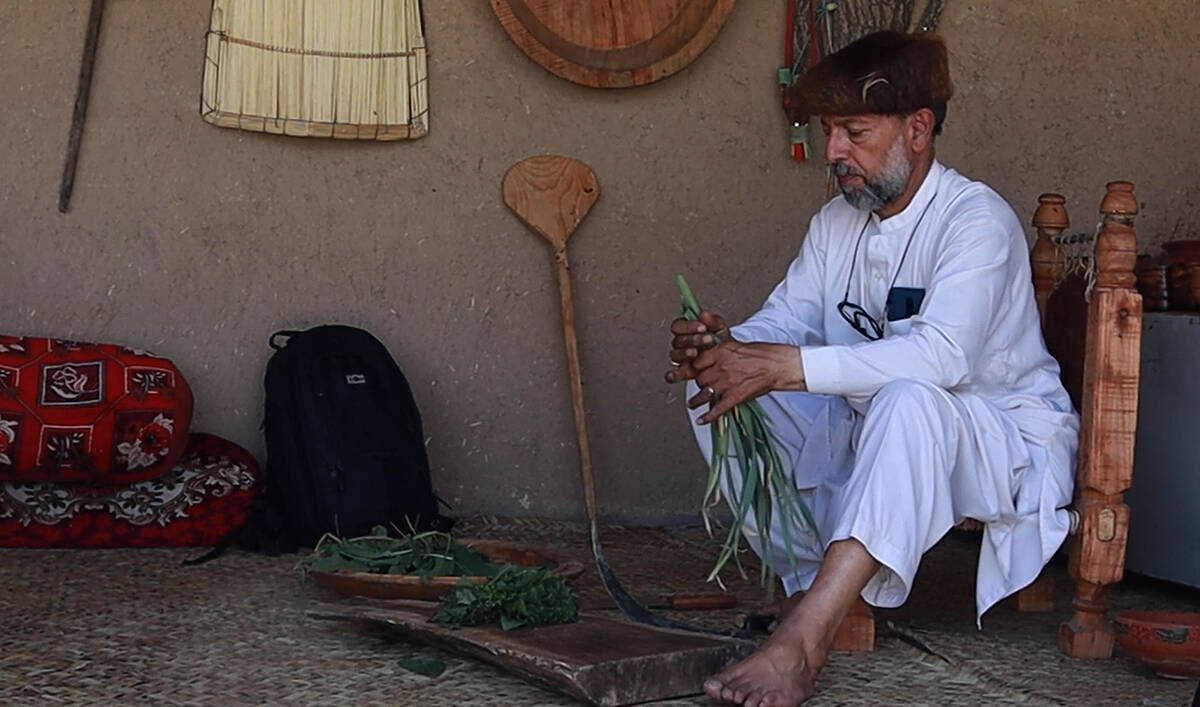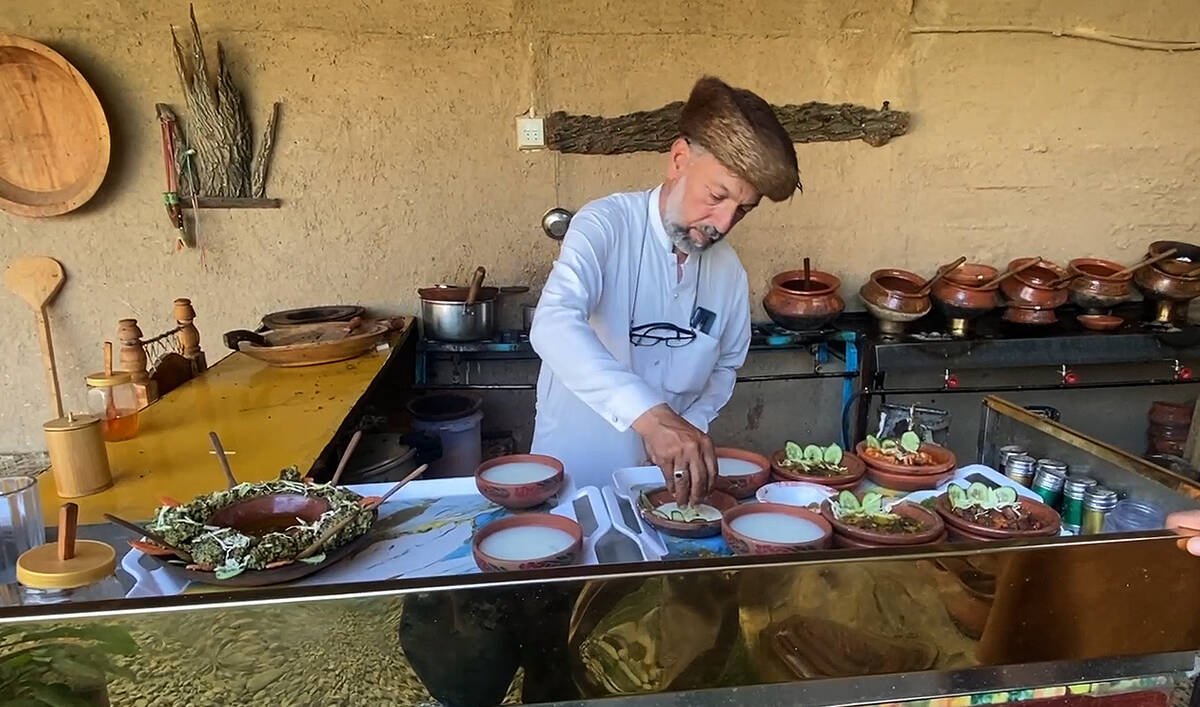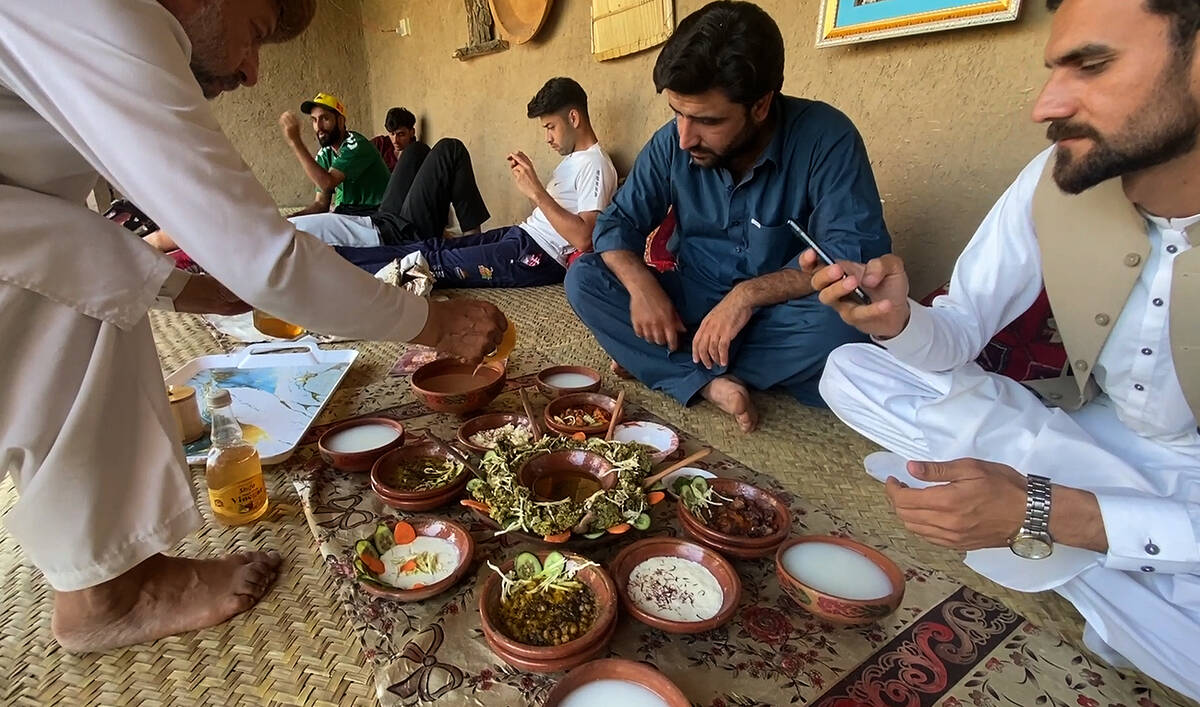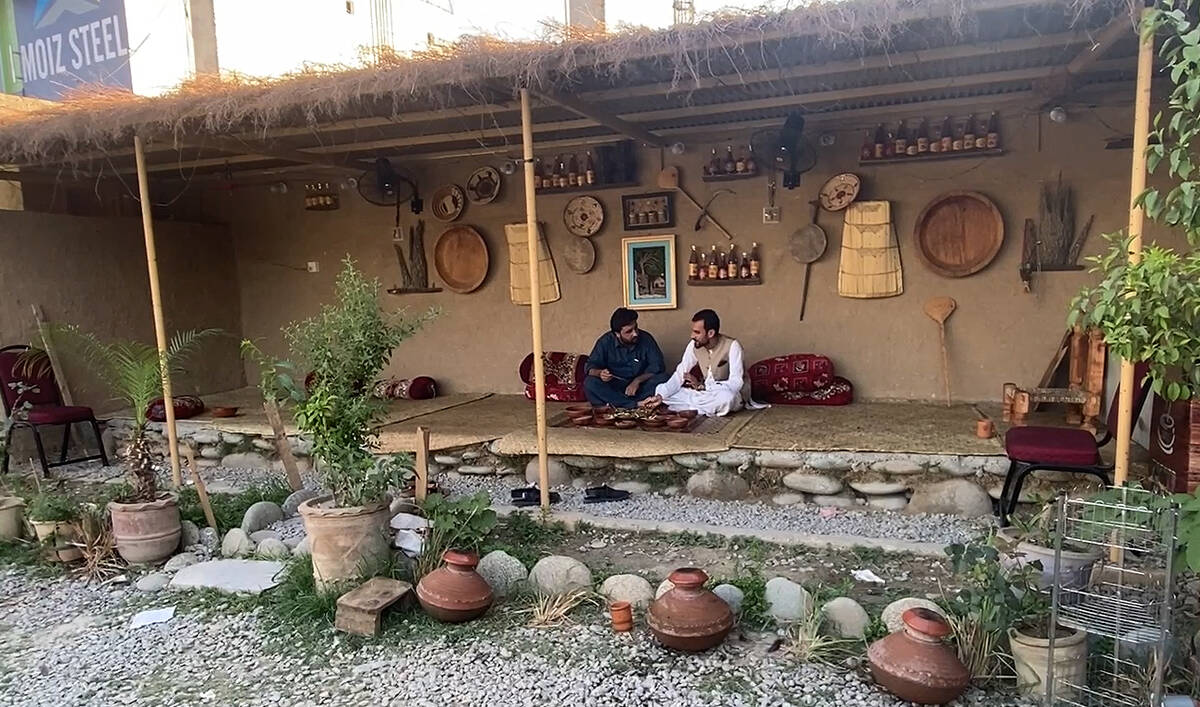ISLAMABAD/KARACHI: The Pakistan Telecommunication Authority has informed the country's biggest mobile network, Jazz, and second-largest telecoms firm, Telenor, that their licences will stand expired on August 21 if the companies do not agree to pay a renewal fee of $450 million as per the PTA’s terms and conditions, PTA and Jazz officials said this week.
Pakistan’s telecoms market was deregulated in 2004 and foreign firms such as Jazz have invested heavily. But now the company fears the new renewal fee, which it says goes against an agreement struck in 2004, will pose a significant risk to the connectivity of millions of Pakistanis and jeopardize a growing digital economy.
According to PTA figures as of April 2019, Pakistan has 161 million cellular subscribers, with 59.2 million using Jazz and 44.8 million on Telenor.
“The decision by PTA to expire the licences of operators on August 21, 2019, if not renewed on their terms, is indeed concerning,” Ali Naseer, Chief Corporate and Enterprise Officer at Jazz, told Arab News in an interview this week. “This can potentially disrupt services for millions of Pakistani cell phone users.”
A Telenor spokesman did not respond to repeated calls for comment but a PTA directive to Telenor dated July 22 and seen by Arab News orders the company to pay the $450 million renewal fee by the August 21 deadline and on the PTA’s terms, or risk discontinuation of operations.
Mobile technology is the primary means of communication for millions of Pakistanis. Recent intelligence research by the GSM Association, a trade body that represents the interests of mobile network operators worldwide, estimated the total economic impact of mobiles on Pakistan’s economy was $17 billion, or 5.4% of GDP.
In 2017, total direct tax and fee payments by the mobile sector were estimated at $950 million, 29% of operator revenue, and the wider mobile ecosystem contributed a total of $1.9 billion in direct and indirect taxes in 2018, as per the GSM Association. A tax directory issued by the Federal Board of Revenue for tax year 2017 listed Telenor and Jazz among the country's top corporate taxpayers.
Pakistan’s government is currently struggling to lift revenues, cut ballooning public debt and raise foreign reserves. A recently signed loan agreement with the International Monetary Fund is aimed at shoring up fragile public finances and strengthening a slowing economy.
“It’s important that Pakistan doesn’t ... place gaining inflated revenues from spectrum licences above the connectivity of its citizens,” Brett Tarnutzer, Head of Spectrum at GSMA, said. “Spectrum prices and taxes should be set at a sufficiently low level that allows operators to deliver affordable services and deploy mobile broadband widely.”
“NEGLIGENCE AND INCOMPETENCE”
The licences of both Jazz and Telenor were originally set to expire on 25 May. In early May, the two companies took PTA to court after the Authority asked them to pay a $450 million renewal fee, more than double the dollar price at which the operators originally acquired licences at auction in 2004.
At the heart of the court challenge between the telecom firms and the Pakistan government is a 2015 telecommunications policy that replaced a 2004 version and which Jazz and Telenor say outlined the terms and conditions for auctions of new spectrums but did not lay down any guidelines regarding renewals.
Globally, licence renewal terms are to be communicated to operators 18 months before a licence is due to expire. According to PTA documents seen by Arab News, the Authority came up with new terms on May 9, a little over two weeks before the May 25 deadline and after Jazz and Telenor had taken the matter to court.
“That is the first example of negligence or incompetence because now, in 2019, when the renewals were due, we found ourselves in a situation where there is no framework,” Naseer said. “Had they [government] come out with a reasonable policy, we would have accepted that because we want predictability. Jazz is now 25 years in the market, we are one of the largest foreign direct investors in the country, we’re not going anywhere in a hurry. We are beholden to the country and we want to work and progress.”
Jazz also says that it communicated its intention to renew its licence 30 months prior to the May 25 expiry deadline, as specified in the licence terms. PTA was then required to inform the operators about the renewal terms and conditions within three months of receiving their intent for renewal, which the Authority did not. In the absence of a new set of guidelines formulated and communicated within the deadline as set by the law and the licence terms, Jazz and Telenor argued in court that the 2004 licence terms and conditions should continue to apply to the latest renewal.
After several hearings, the Islamabad High Court remanded the case back to PTA last month, asking the Authority to review the terms of renewal with a “fresh eye.” After quasi-judicial hearings for both Jazz and Telenor, PTA concluded on July 22 that the telecom operators would have to pay the set price of $450 million by August 21.
PTA directives to Jazz and Telenor seen by Arab News said payment terms for the $450 million renewal fee would be 100% upfront or 50% upfront with the remaining 50% paid in five equal annual installments on the London Interbank Offered Rate, plus 3%. The payment could be made in USD or its equivalent in Pakistani rupees, calculated at the market exchange rate at the time of payment.
“We are disappointed that PTA has not been able to see our point of view on these renewals,” Naseer said. “We are committed to endeavour towards improved connectivity and an enabling digital environment in Pakistan.”
A PTA spokesman declined repeated requests for an interview and only referred to public documents about the licences.
“EVALUATING ALL OPTIONS”
The decision by Pakistan’s cash-strapped government to set the new renewal fee in US dollars and not in local rupee currency, which has lost about 40 percent against the dollar in the last 20 months, is another major sticking point for the mobile operators.
The 2004 auction for a 15-year licence cost $291 million, equivalent to Rs17 billion at the 2004 exchange rate. But with the rupee plunging to record lows against the dollar, Jazz now faces paying Rs67 billion for $450 million, a 265% increase compared to what Jazz paid in 2004.
Naseer said the company earned and charged customers in local currency, not dollars, and thus setting the renewal fee in dollars was “unsound.”
“We believe in Pakistan and if word gets out that existing investors are being treated like this it makes it very difficult for us to say ‘Pakistan is open for business’,” Naseer said.
Jazz says it is now evaluating the option of renewing its licence at the PTA’s asking price, letting it expire or filing an appeal with the Islamabad High Court before August 22. Telenor’s options are similar.
“Honestly, at this stage we are evaluating all our options,” Naseer said. “Nothing has been ruled out.”
Pay $450mln renewal fee or licences expire on Aug 21, PTA orders Jazz and Telenor
Pay $450mln renewal fee or licences expire on Aug 21, PTA orders Jazz and Telenor

- Pakistan’s biggest and second-largest telecom firms have taken the government to court over the renewal process and price
- Companies believe licence price hike goes against a 2004 agreement and have challenged the PTA for setting the price in USD
Temperatures in Pakistan may hit 50°C this week, a global record — report

- Wednesday and Thursday might be the hottest April days for Pakistan, says report
- Says Pakistan recorded temperatures over 4 degrees above average so far this month
ISLAMABAD: Temperatures in central and southern Pakistan may surge to 50°C this week, nearing the global record for the highest temperature ever recorded in April, as per a report by American newspaper The Washington Post.
The warning comes amid increasingly unpredictable climate patterns across South Asia, with several cities in Pakistan’s southern Sindh province such as Karachi experiencing more frequent and intense heatwaves in recent years— a trend that climate experts attribute to broader shifts caused by global warming.
The situation underscores rising concerns over Pakistan’s preparedness for extreme weather events amid growing calls for stronger climate adaptation policies, increased tree cover in urban areas and more effective public awareness campaigns.
“Temperatures in central and southern Pakistan rose to 118 degrees Fahrenheit (47.8°C) last weekend and are forecast to climb through Wednesday, possibly nearing the global April record of 122 degrees Fahrenheit (50°C),” The Washington Post said in a report.
“Heat will build across the Middle East and South Asia through the week, with Wednesday and Thursday looking like the hottest days for Pakistan.”
It added that Sindh’s Nawabshah city had reached the 50°C mark back in April 2018 and could repeat the same this week. Nawabshah recorded a temperature of 50.2°C back then and set a new global record for the highest temperature ever observed in April.
The report said “a sprawling dome of high pressure like a heavy lid trapping heat in a pot” was causing the current heat wave, stretching from the Middle East to South Asia. It noted that this area experiences the Earth’s most unusually warm temperatures during April.
It quoted the European Center for Medium-Range Weather Forecasts as predicting the maximum temperature to remain around 50°C in central Pakistan on Wednesday and Thursday.
“Temperatures have been more than 4 degrees above average in Pakistan so far this April, even before the arrival of this week’s potentially record-breaking heat,” it added.
Pakistan ranks among the top ten countries most vulnerable to climate change, grappling with increasingly frequent extreme weather events from deadly heatwaves to devastating floods.
The 2015 heatwave claimed over 2,000 lives in Karachi alone while the 2022 floods left more than 1,700 dead and over 33 million displaced nationwide.
‘Strive for peace’: Saudi Arabia seeks de-escalation of Pakistan-India tensions

- Riyadh urges neighbors to resolve disagreements through diplomatic channels, strive for stability and peace for their people and region
- Tensions have surged following attack on tourists in Indian-administered Kashmir that New Delhi blames on Pakistan, which denies the charge
ISLAMABAD: Saudi Arabia has expressed concern over heightened tensions between nuclear-armed neighbors Pakistan and India amid exchanges of fire along their disputed border separating Kashmir and fears of an Indian military incursion, state news agency SPA reported on Wednesday.
Relations have plummeted following a deadly attack on tourists in Indian-administered Kashmir on Apr. 22 that New Delhi has said Pakistan was involved in. Islamabad denies the charges. Fears have risen since that India may conduct limited airstrikes or special forces raids near its border with Pakistan.
Pakistan’s information minister said on Tuesday night the country had “credible intelligence” India intended to carry out military action against it in the “next 24-36 hours on the pretext of baseless and concocted allegations of involvement in the Pahalgam incident.”
“The Kingdom appealed to both nations to de-escalate, avoid further escalation, resolve their disagreements through diplomatic channels, uphold the principles of good neighborliness, and strive for stability and peace for the welfare of their people and region,” SPA said.
Meanwhile United Nations Secretary-General Antonio Guterres spoke separately on Tuesday with Pakistan’s Prime Minister Shebaz Sharif and India’s Foreign Minister Subrahmanyam Jaishankar.
“The Secretary-General also expressed his deep concern at rising tensions between India and Pakistan and underscored the need to avoid a confrontation that could result in tragic consequences. He offered his Good Offices to support de-escalation efforts,” UN spokesperson Stephane Dujarric said.
The US State Department has also said Washington was in touch with both India and Pakistan while urging them to work toward what it called a “responsible solution.”
In public, the US government has expressed support for India after the attack but has not criticized Pakistan.
Since the attack, in addition to soldiers shooting over the Line of Control frontier that divides disputed Kashmir between the two nations, India and Pakistan have announced tit-for-tat diplomatic measures that included cancelation of visas and a recall of diplomats.
New Delhi also suspended a crucial water-sharing treaty with Islamabad and ordered its border shut with Pakistan. In response, Pakistan has closed its airspace to Indian airlines.
Kashmir is disputed between India and Pakistan since 1947, with both ruling it in part but claiming it in full.
Pilgrims begin arriving in Madinah as Pakistan launches Hajj flights operation

- Over 89,000 pilgrims will travel under the government’s scheme, traveling to Makkah and Madinah via 342 flights
- Pilgrims from Karachi and Islamabad are availing Makkah Route Initiative designed to streamline immigration process
ISLAMABAD: Pakistani pilgrims who will perform the annual Hajj pilgrimage this year under the government scheme began arriving in Madinah this week as Pakistan kicked off its 33-day-long Hajj flight operation.
Over 89,000 pilgrims will travel under the government’s scheme, departing for Makkah and Madinah via 342 flights, with the last one departing from Pakistan on May 31. The first Hajj flights departed from Islamabad, Lahore, Karachi and Quetta for the Saudi city of Madinah on Tuesday.
“First flight carrying 393 pilgrims from Islamabad landed at Prince Mohammad bin Abdulaziz International Airport,” Radio Pakistan reported on Wednesday.
“The intending pilgrims were transported to their residences in special buses. Later, they were warmly received at their hotels and presented flowers, chocolates, dates and refreshments as per Saudi cultural traditions.”
The pilgrims from Karachi and Islamabad availed the Makkah Route Initiative, which is designed to streamline immigration processes by enabling pilgrims to complete official travel formalities at their departure airports. Initially tested in Islamabad in 2019, the program was later expanded to Karachi, benefitting tens of thousands of Pakistani travelers. This saves pilgrims several hours upon arrival in the Kingdom, as they can simply enter the country without having to go through immigration again.
Around 50,500 Pakistani pilgrims will travel to Saudi Arabia under the initiative this year. The scheme was launched in 2019 by the Saudi Ministry of Hajj and Umrah and has been implemented in five countries: Pakistan, Malaysia, Indonesia, Morocco and Bangladesh.
Besides those using the government scheme, 23,620 Pakistanis will also perform Hajj through private tour operators.
The total quota for pilgrims granted to Pakistan for 2025 was 179,210, which could not be filled.
Traditional Swati rice dish finds new life at Pakistani valley’s roadside eatery

- Restaurant owner Nasar Khan began preparing warjale as a hobby, turned it into a business after strong demand
- Labor-intensive dish prepared with begumi rice grown in Swat and mixed with naturally occurring bitter wild greens
SWAT: At a small mudbrick, hut-style restaurant in Pakistan’s picturesque Swat Valley, customers are showing up to try a traditional delicacy: warjale.
A local version of vegetable rice served with clarified butter, yogurt, cheese, milk, fresh cream and sometimes with the sauce of chicken meat, warjale, an old regional dish, is being kept alive as the main attraction at the Kawdareen Traditional Restaurant (KTR) in Mingora city.
Known for its scenic landscape of mountains and trees and cultural heritage and archaeological sites, Swat attracts thousands of visitors every year.
Many now seek out Khan’s modest eatery to experience a taste of the valley’s traditional cuisine, especially warjale, which is made from a special rice called begumi, named after a noblewoman, Begum Bilqees Effandi, who had brought the rice variety’s seeds from Afghanistan in 1949 and cultivated it in the Bagh Dherai area of Swat for the first time.

“I had another business, this was my hobby but God gave me a chance and made this a business out of my hobby,” Nasar Khan, the 60-year-old owner, told Arab News at the restaurant which he started six years ago to revive traditional foods from the valley and introduce them to young people.
“I had in mind that our traditional food should be commercialized so that the youth who don’t know about it should get a sense of it, that was the main aim.”
Khan said he served nearly all the traditional foods of Swat, such as warjale, khare, a popular dish made with lamb, tomatoes, garlic and minimal spices cooked in a traditional karahi pan, as well as saag, which is cooked mustard or similar bitter wild greens.

A warjale meal was typically served with desi ghee, fresh cream and a yogurt-based drink called lassi. A portion for two people costs around Rs1,000, less than $1, while a three-person meal costs around Rs1,300.
Cooking warjale was a labor-intensive task, Khan explained.
“Warjale is cooked in a specific kind of saag, which can’t be cultivated but grows naturally,” he said. “The locals then pluck it and cut it in a special way … People of upper Swat call it chukan and those who live in the lower part call it warjale.”

Khan said warjale’s distinct flavor derived from ingredients that could only be sourced in Swat’s environment.
“The soil of Swat is fit for growing [Begami rice], which needs cold weather, fresh water and an environment like this,” he said.
Tourists visiting the restaurant vouched for the unique taste.
Izhar Zeb Yousafzai, a computer science lecturer visiting from Timergara, said he first heard about KTR online:
“We saw some videos about this restaurant on social media. We had a day off today, so we came here with friends ... Warjale was their specialty and we got a chance to eat it after a long time. When we gave it a try, we found its taste delicious.”

Asad Khan, a 28-year-old resident from Besham in Shangla district, said he had come to Swat for sightseeing before he heard about the restaurant and the dish.
“Warjale is the traditional food of Swat,” he said. “The way it is cooked and then presented with desi ghee, it has an exceptional taste, we can’t explain it.”
Pakistan says army destroyed Indian posts along Kashmir border after ‘unprovoked’ firing

- Indian forces used small arms to attack Pakistani posts in Kayani and Mandal sectors on Tuesday night, state media reports
- Pakistan information minister says Islamabad has “credible intelligence” New Delhi intends to launch military action within 36 hours
ISLAMABAD: Pakistan army troops responded to “unprovoked” Indian shelling on Tuesday night across the de facto border that divides the disputed Kashmir region between the two nations, state media reported on Wednesday citing security sources, adding that Indian posts were destroyed in the exchange.
Tensions have surged between the nuclear-armed neighbors following a deadly attack on tourists in Indian-administered Kashmir on Apr. 22 that New Delhi has said Pakistan was involved in. Islamabad denies the charges and has said it will participate in any credible and transparent investigation of the assault.
Fears have risen since that India may retaliate by conducting limited airstrikes or special forces raids near the Line of Control (LoC), which runs 742km (460 miles) dividing the parts of Kashmir governed by India and Pakistan and acts as part of the de facto border between the two countries.

State-run Pakistan Television (PTV) reported India had carried out “unprovoked” firing in the Kayani and Mandal sectors of the Line of Control on Tuesday night. Small arms were used by the Indian forces, prompting Pakistan to respond.
“There are also reports that multiple enemy posts were destroyed by the Pakistan Army’s effective response,” PTV said, naming one of them as the Chakpathra post.
PTV said India had earlier evacuated areas near its side of the disputed Kashmir border and launched a “crackdown” against Muslims in the area. These reports have not been independently verified.
“This provocation from India reflects its war hysteria,” PTV said. “The Pakistan Army is fully prepared to defend the country’s sovereignty at all times.”
Earlier on Wednesday, the state-run Associated Press of Pakistan reported that a “timely” response by the Pakistan Air Force (PAF) had “forced” four Indian Rafale jets to retreat after payrolling near the two nations’ de facto border.
“On the night of April 29/30, four Indian Rafale jets conducted patrolling within Indian geographical boundaries” near the LoC, APP reported, saying PAF “immediately” detected the jets.
“A timely and swift response by the Pakistan Air Force forced four Indian Rafale jets to retreat … The Pakistani armed forces remain fully prepared and alert to give a befitting response to any aggression from India.”
Since last Tuesday’s attack, in addition to shooting over the Line of Control frontier, India and Pakistan have announced tit-for-tat diplomatic measures that included the cancelation of visas and a recall of diplomats. New Delhi also suspended a crucial water-sharing treaty with Islamabad and ordered its border shut with Pakistan. In response, Pakistan has closed its airspace to Indian airlines.
Late on Tuesday night, Pakistan’s Information Minister Ataullah Tarar said Pakistan had “credible intelligence” India was planning military action against it in the “next 24-36 hours on the pretext of baseless and concocted allegations of involvement in the Pahalgam incident.”
The statement came after Indian Prime Minister Narendra Modi on Tuesday reportedly authorized his country’s armed forces to respond to the latest attack in whatever way it deemed fit.
India and Pakistan both claim Kashmir in full and rule it in part since 1947.













